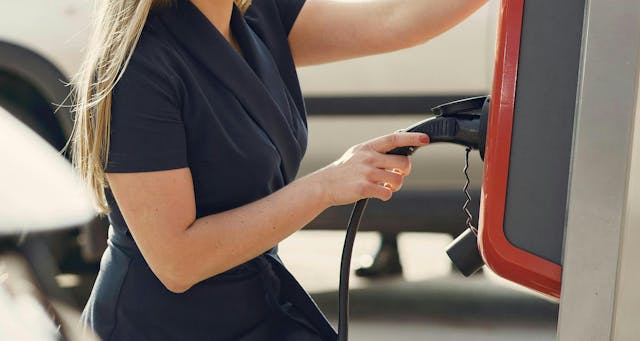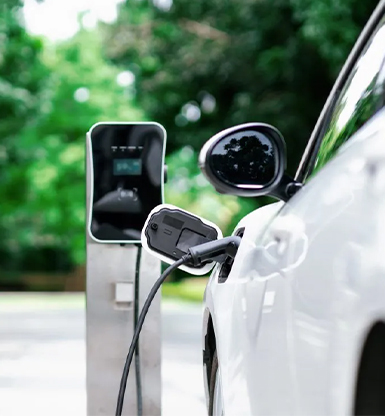How to Stay Updated on Industry Developments When You Buy EV Charging news
How to Stay Updated on Industry Developments When You Buy EV Charging news
Blog Article
Leading EV Charging Information: Key Updates on Facilities and Technology

Recent Improvements in Fast-Charging Modern Technology

Additionally, improvements in battery technology, including boosted thermal management systems and greater energy thickness batteries, complement fast-charging abilities. These developments reduce the risk of battery destruction during fast charging, making sure longevity and efficiency for EV proprietors.
Furthermore, the assimilation of wise charging solutions is improving customer experience, making it possible for real-time surveillance and vibrant rates versions. EV Charging news. This adaptability permits motorists to maximize billing times and prices based on grid need
As car manufacturers proceed to invest in fast-charging networks, the cooperation between market stakeholders is vital. Collaborations in between billing terminal suppliers and vehicle manufacturers are leading the way for considerable protection, ultimately cultivating a more robust EV environment. These improvements are crucial in sustaining the change to lasting transport.
Government Initiatives for Charging Expansion
Federal government campaigns play a vital duty in the development of electrical automobile (EV) billing facilities, assisting in the shift to lasting transport. Different federal and state programs are being executed to enhance charging access, lower the economic worry on customers, and promote the adoption of electrical automobiles.
Significantly, the U.S. federal government has actually designated considerable funding via the Framework Investment and Jobs Act, which earmarks $7.5 billion for EV billing network development throughout the country. This financing is focused on releasing countless brand-new charging stations, specifically in underserved areas, thereby resolving variety anxiety among possible EV purchasers.
Additionally, countless states are passing legislation to simplify the permitting procedure for billing station installments, which is crucial for accelerating release. Rewards such as tax obligation credit reports and refunds for both consumers and services are also being presented to encourage the setup of charging framework.
Moreover, public-private collaborations are progressively coming to be a focus, leveraging exclusive investment to complement federal government financing. These efforts highlight a collaborative technique essential for developing a efficient and extensive EV billing network, inevitably contributing to a greener and more sustainable future.
Cutting-edge Battery Solutions Enhancing Efficiency
Transforming the landscape of electrical lorry (EV) technology, ingenious battery remedies are significantly enhancing effectiveness and efficiency. Advances in battery chemistry, especially with lithium-sulfur and solid-state batteries, are causing raised energy thickness, which permits longer varieties and faster charging times. These brand-new battery kinds have the possible to outperform traditional lithium-ion batteries by supplying higher capacities while decreasing weight, thus enhancing general automobile performance.
In addition, growths in battery administration systems (BMS) are enhancing energy usage and extending battery lifespan. Intelligent formulas monitor battery health and efficiency, making it possible for real-time changes to billing and releasing procedures. This not only enhances the efficiency of the battery but additionally makes certain an extra sustainable and trustworthy power resource for EVs.
Additionally, the integration of recycling modern technologies is resolving the environmental influence of battery production and disposal. Innovations in second-life applications for EV batteries are promoting their usage in energy storage space systems, adding to a circular economy.
As these cutting-edge Check Out Your URL battery remedies remain to evolve, they assure to change the EV market, making electrical automobiles much more accessible and enticing to a more comprehensive target market while sustaining global sustainability goals.

Collaboration Between Automakers and Charging Networks
Recognizing the crucial demand for a durable charging framework, car manufacturers are significantly collaborating with charging network suppliers to boost the EV possession experience (EV Charging news). These collaborations intend to develop a Find Out More smooth charging community that benefits consumers and supports the transition to electrical vehicles
Significant auto brands are joining forces with established billing networks to increase their billing station coverage, ensuring drivers have access to practical and dependable charging options. As an example, collaborations with networks like ChargePoint and Electrify America enable automakers to integrate billing options directly into their lorries' navigating systems, leading customers to the nearby stations and giving real-time accessibility updates.
Furthermore, these cooperations commonly result in the growth of fast-charging innovations that significantly minimize the time required to charge an EV. By merging resources and proficiency, car manufacturers and charging networks can introduce faster, producing options that meet the expanding demand for electric flexibility.
Additionally, joint campaigns may likewise cause more standardized billing protocols, which can ease consumer confusion and advertise more comprehensive EV fostering. Overall, these calculated partnerships are pivotal in developing a easy to use and reliable charging framework that meets the needs of a broadening electrical vehicle market.
Challenges Dealing With EV Billing Framework
As the electrical automobile market continues to grow, numerous difficulties are surfacing that impede the advancement of a thorough charging infrastructure. One of the main challenges is the not enough variety of billing terminals, especially in underserved and country city locations. This void develops range anxiety among possible EV customers, hindering them from making the button.
Additionally, the lack of standardization in charging technology complicates the facilities landscape. Variants in plug types and charging speeds can develop complication for customers and raise functional intricacies for billing network drivers. look what i found The combination of charging stations into existing electric grids presents considerable difficulties. Many areas encounter ability restrictions, requiring substantial financial investments in grid upgrades to fit boosted demand.
Another pushing problem is the high cost connected with the installment and maintenance of charging terminals, which can be a barrier for both public entities and private services. Finally, regulative difficulties and zoning limitations can delay the implementation of charging facilities, impeding progression in expanding essential services. Dealing with these obstacles will be vital for fostering a robust EV ecological community that supports the shift to lasting transportation.
Conclusion
Finally, the recurring advancements in EV billing technology, supported by considerable federal government campaigns and cutting-edge battery solutions, are important for the growth and performance of electrical car facilities. Partnerships between car manufacturers and billing service providers even more improve station protection, addressing the growing need for obtainable charging alternatives. Despite obstacles that continue within the EV billing landscape, these developments signify a positive trajectory towards an extra sustainable and reliable electrical car ecological community.
Technologies in charging infrastructure have actually led to the growth of ultra-fast chargers qualified of delivering up to 350 kW of power, substantially reducing charging times. Variants in plug types and billing rates can develop confusion for customers and raise functional intricacies for billing network drivers.In conclusion, the continuous advancements in EV charging modern technology, supported by substantial federal government initiatives and cutting-edge battery solutions, are critical for the expansion and efficiency of electric car facilities. Partnerships between car manufacturers and billing companies further boost terminal protection, resolving the expanding need for obtainable charging alternatives. In spite of obstacles that persist within the EV charging landscape, these growths signify a favorable trajectory in the direction of a much more sustainable and effective electrical automobile ecological community.
Report this page